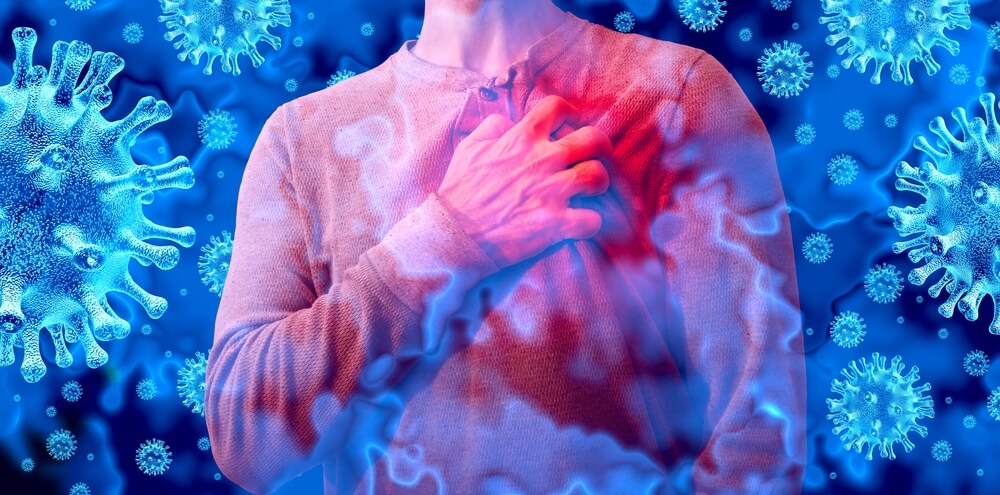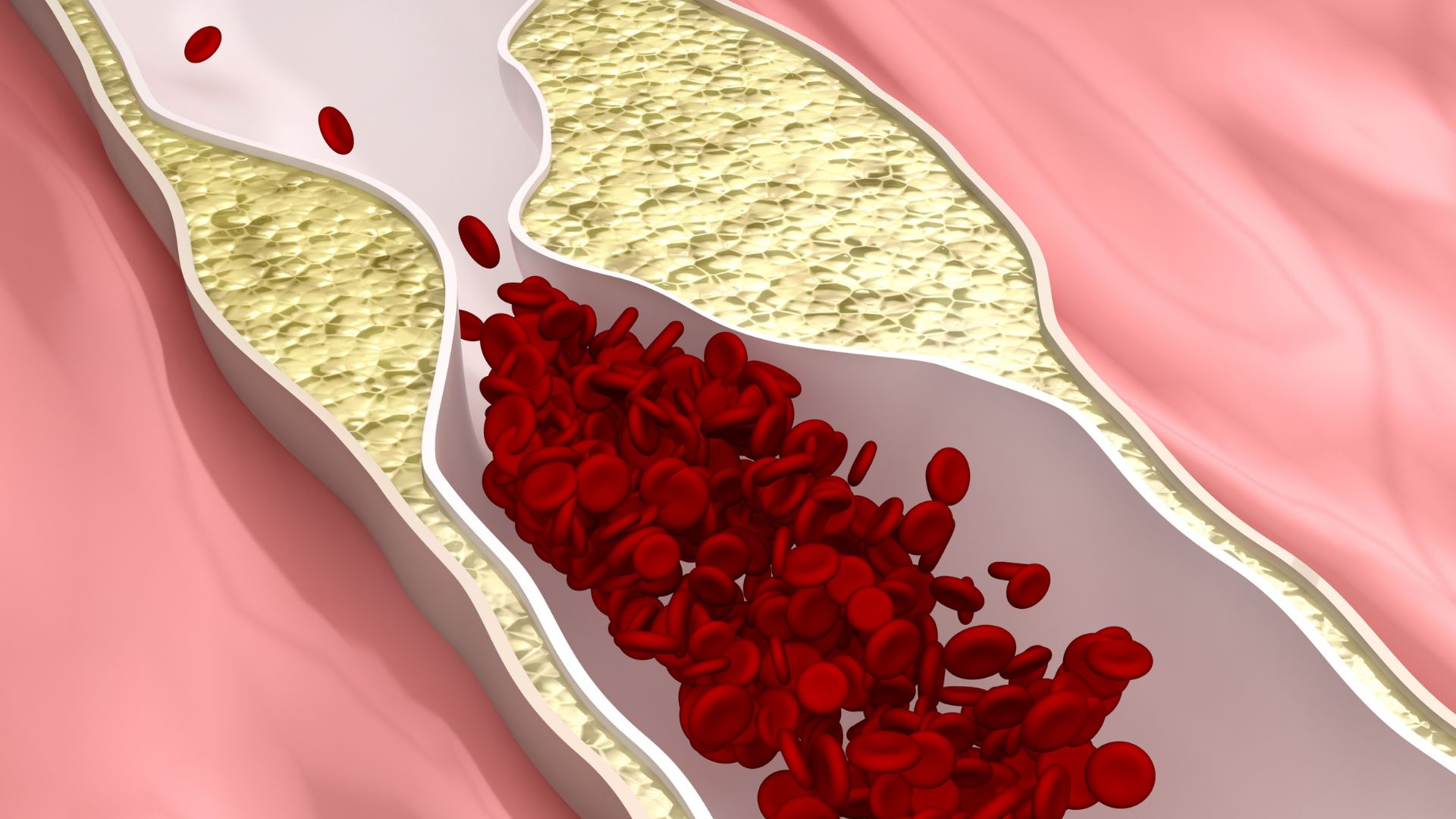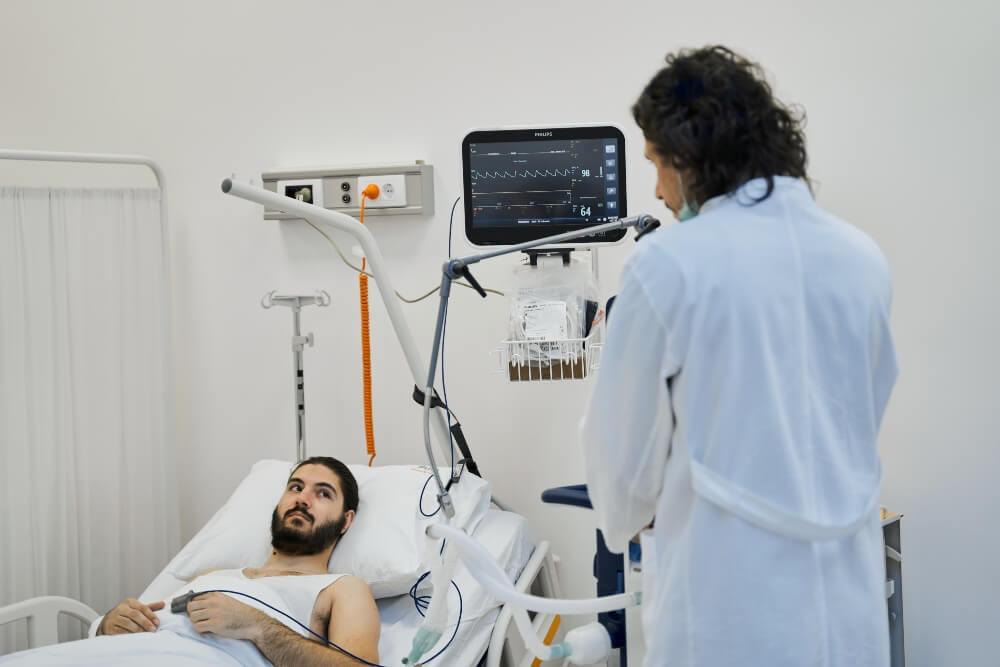If you need an examination by a cardiologist in Belgrade, our institution is the right place for you. In one place, in the shortest possible time, you will do all the necessary analyses, receive a diagnosis and instructions for further treatment of the detected problem.
In order to react in time if necessary, it is useful to know some of the most important facts about this disease, its symptoms and the method of treatment.
What is myocarditis?
The myocardium is the heart muscle, and myocarditis refers to inflammation of the heart muscle. As a result of inflammation involving the heart muscle, the heart cells swell and die, causing problems with the heart muscle and the electrical conduction system of the heart. When this happens, the heart has a hard time pumping blood, and because of this, patients experience arrhythmias, which is why they usually see a doctor. Functioning of the heart when it comes to myocarditis can be described as rapid or simply irregular. These functional problems stop when the disease is cured.
On the other hand, if the inflammation is severe or is not treated in time or is not adequately treated, permanent consequences may remain. When the cells of the heart fail irreversibly, scars appear, and then the expansion of the heart cavities, after which the patient is diagnosed with heart failure, which poses a serious threat to health and life. Heart failure sometimes requires the installation of a device that will help the heart work, and sometimes even a transplant.
In most cases, this inflammation is successfully treated, but it is impossible to say exactly whether it will return. It is not unusual for some patients to relapse after a certain time.
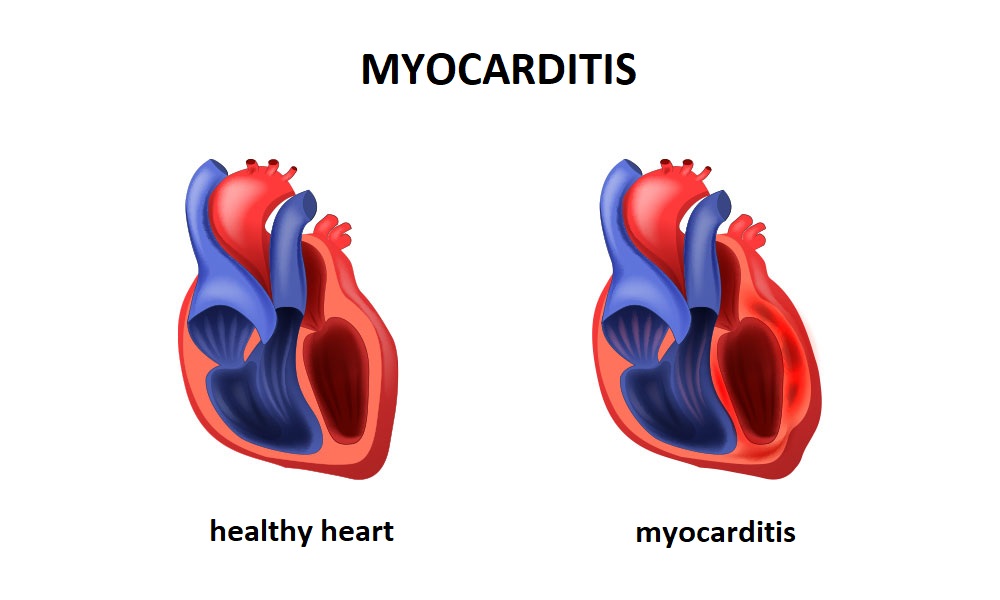
The symptoms of myocarditis
Symptoms of inflammation of the heart muscle may be completely absent, but unfortunately this does not mean that this is a harmless disease. It happens, not very often, that the first symptom is sudden cardiac death. Also, the problem is that the symptoms can sometimes be mistaken for typical signs that we have a viral infection or some other heart disease.
For these reasons, we should not carry out diagnosis and treatment on our own, but only in consultation with doctors.
The most common symptoms of myocarditis are:
- fluttering in the chest
- heart palpitations
- palpitations
- chest pain
- chest pressure
- fatigue, tiredness when performing usual activities
- shortness of breath (can occur after any physical activity and even at rest)
- swelling of legs, feet, hands due to water retention
- loss of consciousness
- a headache
- body aches as with a viral infection
- diarrhea
- sore throat
- elevated temperature
Why does myocarditis occur?
Inflammation of the heart muscle most often occurs as a consequence of the existence of some other problem in the body. The most common are the following situations:
- viral infection – numerous viruses can cause problems with the heart muscle, including: adenovirus, coxsackie, parvovirus B 19, Epstein-Barr virus, HIV, varicella virus, human herpes virus 6, hepatitis C virus and SARS-Cov -2 (in the case of the coronavirus responsible for the outbreak of the pandemic, myocarditis was often the reason for sudden cardiac death)
- bacterial infection – among the bacteria that can cause myocarditis are staphylococcus, streptococcus, the bacterium that causes Lyme disease, and previously this inflammation was often the result of the bacterium Corynebacterium diptheriae
- parasites – chlamydia, Trypanosoma cruzi and toxoplasma
- autoimmune diseases – lupus, rheumatoid arthritis, giant cell arteritis, dermatomyositis, sarcoidosis, scleroderma
- certain medications – medications such as penicillin, clozapine, ampicillin, methyldopa, hydrochlorothiazide, and sulfonamides may trigger this problem
- toxins – poisons of certain species of spiders, arsenic, carbon monoxide, lead
How is myocarditis diagnosed?
When a doctor suspects, based on the medical history, that a patient has inflammation of the heart muscle, several methods are available to him that can help determine the existence of this disease. However, there is nothing very specific for the detection of myocarditis, and that is why the knowledge and experience of the person examining you is very important for a quick and accurate diagnosis.
The following methods are most often applied:
- ECG – It is a very good method for detecting arrhythmias, however, myocarditis does not always imply heart rhythm disorders, so in many situations this will not be enough and will not be the only method that the patient will be subjected to in order to detect the disease.
- Blood tests – As usually some other infections lead to the appearance of this disease, laboratory tests are necessary for the treatment of the primary disease, but some of them, including CK-Mb and troponin, can also indicate that something is wrong with the heart muscle.
- Echo (ultrasound) of the heart – This non-invasive method can help to see problems such as: enlarged heart, thickening of the walls, problems with their mobility, weakness of the heart, thrombus, accumulated fluid.
- Chest X-ray – An X-ray can look for potential signs of heart failure such as an enlarged heart shadow and fluid build-up around the heart.
- Magnetic resonance imaging of the heart – This is another way to get a clear picture of the heart’s structure, shape, size, and whether there are any problems with its function. It is also possible to see if scars have formed on the heart muscle due to the deterioration of heart cells.
- Cardiac catheterization and endomyocardial biopsy – Analyzes conducted in this way involve invasiveness and may not always give accurate results. A catheter is used to lead the instruments to the heart through a vein in the arm or groin, where part of the tissue is taken for analysis. The disadvantage of this method is that it may happen that the analyzed tissue is not taken from the place covered by the inflammation, so the results are not reliable.
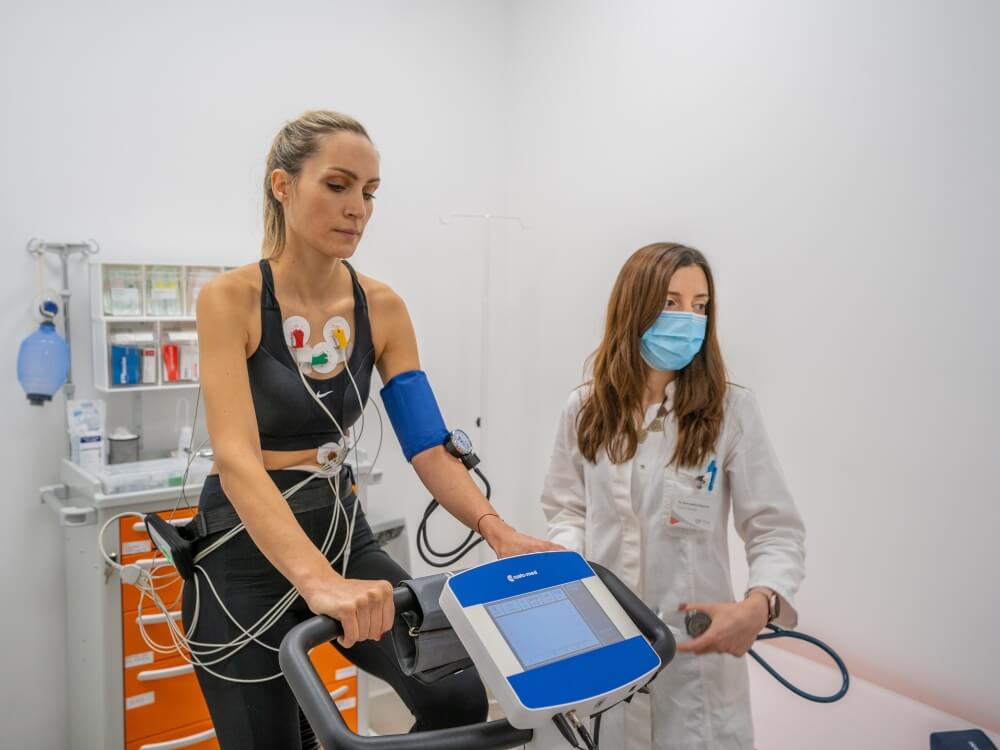
Treatment of myocarditis
Most patients spontaneously overcome this disease (as many as 80% of them), while in some it can really become complicated and leave major consequences. If you had the need to see a doctor because of inflammation of the heart muscle, follow the therapy, rest, do not exert yourself and you will feel better after a few days or a few weeks. The course of treatment and the speed of treatment depend a lot on the patient himself. After inflammation, it is not recommended to quickly return to some more strenuous activities, so for example athletes are always stressed that they should not exercise at full strength as long as there is a risk of sudden cardiac arrest.
A certain number of patients will have to be hospitalized, so they will receive therapy under strictly controlled conditions. Those who develop the disease, to the appearance of heart failure, should get used to a new way of life, regular check-ups, strict therapy and following the doctor’s advice. In some situations, even this is not enough, so some kind of intervention is needed, the installation of a device that will stimulate the heart or even transplantation.
Any heart disease should be taken very seriously. If the heart is not working well, the whole organism suffers and this is very quickly reflected in our way of life, all the activities we engage in, and even in our life span. For this reason, we should never wait and postpone the examinations with a cardiologist, especially if we feel that our condition or the work of our heart deviates from the usual.
Our team consists of more than 20 cardiologists always available for patients who care about their heart. Call us and book an appointment.

